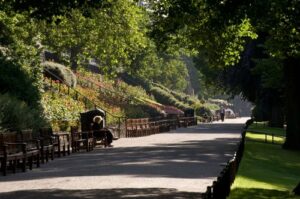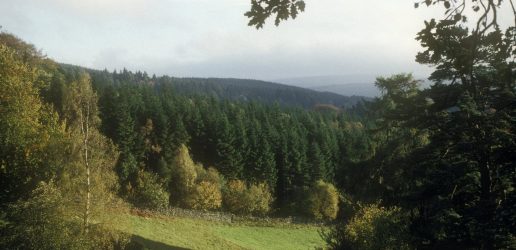The COVID-19 outbreak has affected people’s lives in many ways, but how has it affected our relationship with nature?
Forest Research has carried out a survey and interviews to find out if the COVID-19 restrictions of spring to early autumn 2020 led to changes in people’s interactions with trees, woodlands and wider nature, and the benefits they gained from appreciating, feeling connected to and accessing nature. The work was carried out as part of the Active Forests Programme funded by Forestry England and Sport England with support from the National Lottery.
The research illustrates the important role that trees, woodlands and wider nature can play as part of people’s everyday lives and in supporting and protecting their wellbeing under the very difficult circumstances of a global pandemic. However, it also points to differences between groups in their ability to access and benefit from nature during this time.
Analysis of the survey responses found that use of ‘woodlands or forests’, and ‘fields, farmlands, countryside’ by respondents during the period of COVID-19 restrictions, remained higher than for other nature spaces. Gardens were also very important, with the majority of respondents spending more time in their garden during the restrictions.

For the majority, the restrictions increased the time they had taken to appreciate nature, their feelings of connection to nature and their level of happiness when in nature. Over half felt they had an increased appreciation of the trees in their street, garden, park, along footpaths, and in woodlands. Interactions with nature resulted in an increase in a range of benefits but were especially important in providing respondents with a ‘feeling of escape and freedom’.
However, for more than half of respondents, a concern about overcrowding and not being able to keep their distance from others acted as a barrier to them enjoying nature. Indeed, there were some significant differences between groups in terms of how they interacted and benefited from nature.
Physically active respondents tended to increase their physical activity following the introduction of COVID-19 restrictions and over 50% said that they would ‘definitely sustain’ any improved physical activity levels they had made in the long-term. However, physically inactive people tended to decrease their activity during the restrictions. The physically active were more likely to have maintained their wellbeing to a greater extent than those who were less physically active.
Younger people were more likely to report a range of positive effects of engagement with nature compared to older respondents, and females were more likely than males to report a range of positive effects of nature. Young people were also more resilient to changes in happiness during the COVID-19 restrictions compared to older (age 55+ years) respondents.
Younger and older individuals were more likely to report not meeting people they usually meet and not being able to use facilities, as barriers to spending time in nature than middle-aged individuals, while households with children (under-16 years) were more likely to report a lack of facilities due to COVID-19 restrictions as a barrier.
Further details of the research and the survey results are available. Analysis of the interviews and the qualitative survey will be available soon.
New research has been published which explores how to enable and encourage access to woodlands for diverse members of the public.
Forest Research has been involved in a project focusing on efforts to improve inclusivity in biosecurity practices by exploring how to integrate different knowledge systems into mainstream decision-making.

Forest Research has released the latest Accredited Official Statistics on woodland and forestry in the UK.
New research has been published which explores how to enable and encourage access to woodlands for diverse members of the public.
Forest Research has been involved in a project focusing on efforts to improve inclusivity in biosecurity practices by exploring how to integrate different knowledge systems into mainstream decision-making.

Forest Research has released the latest Accredited Official Statistics on woodland and forestry in the UK.